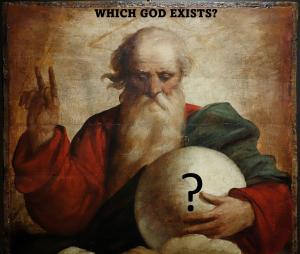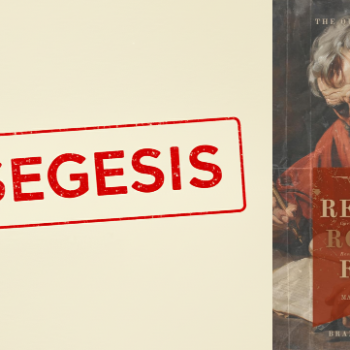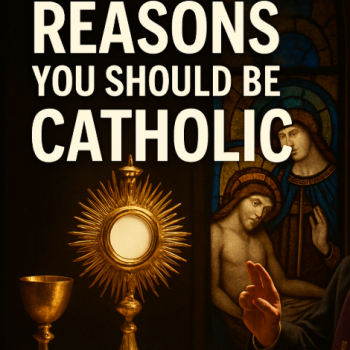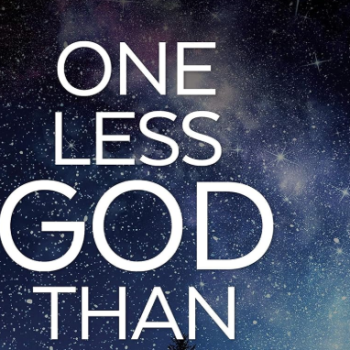
In discussions over the existence of God, many atheists seem to assume that anything that can be labeled “god” counts toward what informed Christians mean by the term. I’ve seen more than one atheist in a debate say that with the thousands of gods on offer from the world’s religions, atheists only disbelieve in one more of them than Christians do – and if Christians were consistent, they’d be atheists about their god too. This is a dim-witted argument on multiple counts, but besides reflecting poor reasoning it also reveals ignorance as to what a Christian means (or should mean) when he speaks of “God.”
Even if they existed, beings such as Odin, Zeus, or Thor cannot be the God of creation. At best they would be very powerful sub-creations and thus part of the natural order. The creator God is metaphysically distinct from them or any other natural thing (i.e., super-natural). Once this is understood, the absurd nature of the above claim becomes apparent. Moreover, the existence of this kind of God is not simply a matter of biblical interpretation or theological tradition – it is solidly based in philosophical principles derived from creation itself.
Now, Thomas Aquinas wrote what might amount to a doctoral dissertation on this subject but we don’t have time for that here. (If you want to get it straight from him, the book is called On Being and Essence). I’ll summarize the relevant points here in a way that I hope will make sense to non-philosophers. We start with a simple and, I think, obvious principle:
A thing’s essence and existence are distinct.
The term “essence,” as it is used here, refers to what a thing is. My essence is humanness, a horse’s essence is horseness. You get the point. “Existence,” on the other hand, here refers to whether or not there is a certain thing. The important thing to grasp is that essences do not automatically exist just because we know what they are. In fact, we could not know if something existed unless we first knew what it was.
So for example, a horse in a field is an essence with existence. A dinosaur is an essence without existence (there must be an essence or we wouldn’t know what a dinosaur is to deny that there are any). A phoenix is an essence that never had existence. Etc.
Because we can have essences that do not have existence (like the character Harry Potter whose essence is human but who does not have existence), essence and existence cannot be equivalent. Moreover, since a thing’s essence and existence are distinct, then:
If an essence has existence it must have received it from another.
A “bare essence” without existence does not, by definition, exist – and non-existent things can’t be the cause of anything (much less themselves). So if an essence has received existence, it must have come from some other essence that already had existence (it would have to exist in order to accomplish this feat). But now we run into a problem – because how did THAT thing get its existence?
We still cannot say this other essence got existence from itself – and if we say it came from another, then we enter into an infinite regress of causes. There are two problems with infinite regresses. First, there cannot be an infinite series of things, because infinity is not a number (crazy paradoxes arise when we try to treat infinity like a number – see Hibert’s Hotel or Zeno’s paradoxes for example). Second, even an infinite chain of essences causing other essences would not explain the chain. It would be like trying to explain the motion of rail cars that cannot move by themselves. Adding more doesn’t help! Eventually you need to have something that can move itself – something that doesn’t just have motion, but has it essentially ( it because of what it is – i.e., a train engine). So,
There cannot be an infinite series of existing-giving essences.
In a similar fashion with the engine and rail cars, since every essence-existence combination cannot be explained by another, there must be a cause which exists because of what it is – a thing in which essence and existence are not distinct (and therefore require no cause to join them together). Therefore,
This cause would not have existence – it would be existence.
The final piece of the puzzle here involves noting that pure existence is boundless. This is no mere assertion – what limits existence is always essence. The existence of the man, horse, and sun do not overlap – they are not shared. The existence of a thing is limited to what it is – a thing’s essence limits its existence. However, a being who joins existence to essences (i.e., creates) and whose essence is existence would be unlimited….infinite….pure spirit…
This infinite spirit can only be the creator God.
This unlimited creator is, of course, God. Thus, when God’s essence is described as various attributes – each must be understood as being without limit. This is why the theologically sophisticated list of God’s attributes traditionally are formed by prefixing the principle attribute in such a way as to highlight lack of limitation either positively (e.g., omni-, all-,) or negatively (e.g., a-, e-, im-, in-). Thus, the Christian God is not accurately described as an old man in Heaven or a towering figure throwing a hammer around. He is infinite spirit, immutable, eternal, omnipresent, omniscient, omnipotent, etc.
The fact of the existence of a universe of things that do not exist simply because of what they are (their essence) shows that there must a cause exist whose essence is existence. Further, it shows that there can only be one of them (because unlimitedness cannot be multiplied). When we understand that this unlimited, infinite, first cause is the creator traditionally affirmed by Christianity, we see that comparing the true God to the “gods” of other religions is to commit a category mistake.
Douglas Beaumont
A writer, teacher, and speaker on topics in Christian Apologetics, Philosophy of Religion, Sacred Scripture, and Catholic Theology. Please check out Douglas’ content via the links below. Thank you.
If you enjoy my writing and want to support my work, please consider donating a monetary gift of any size or quantity by clicking here. Thank you!
Read my other writing here.
Please click the link below to join.
Voices of the Faithful in the Synod on Synodality
Please make your voice heard.













